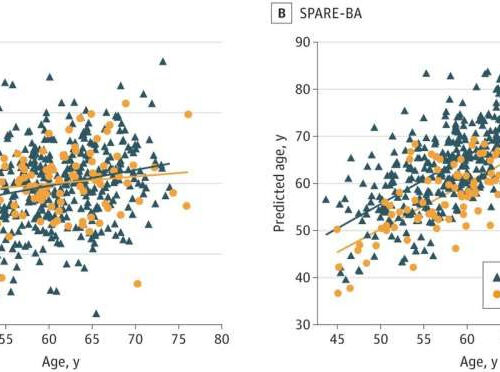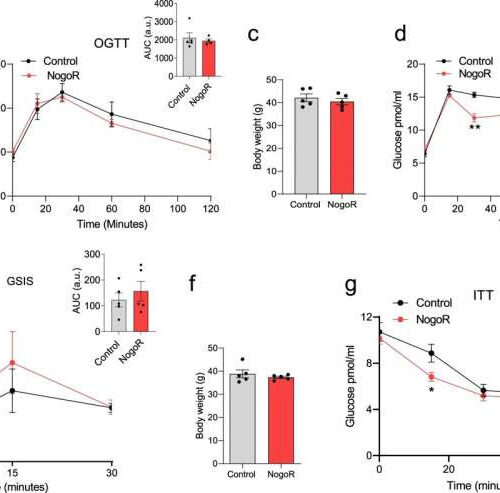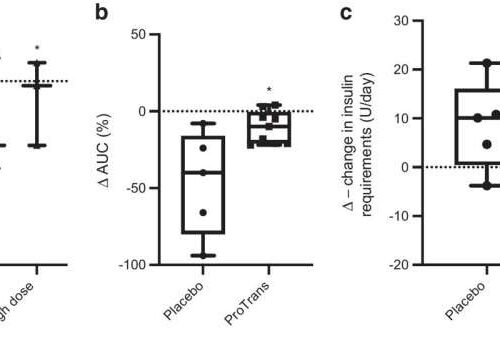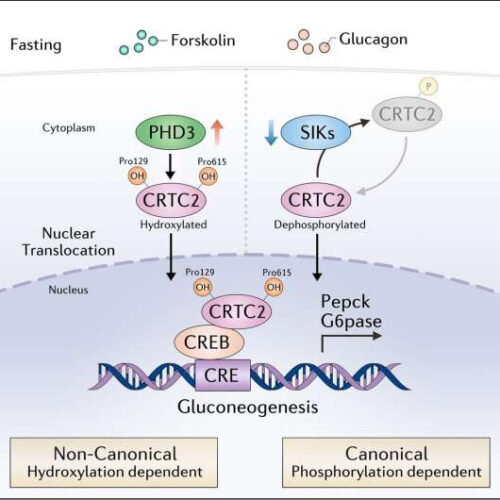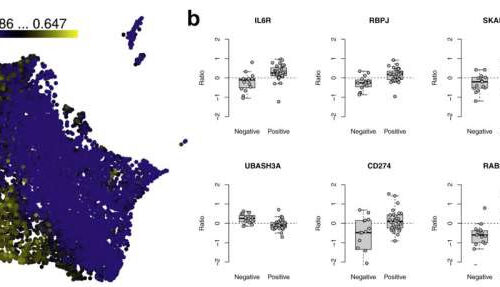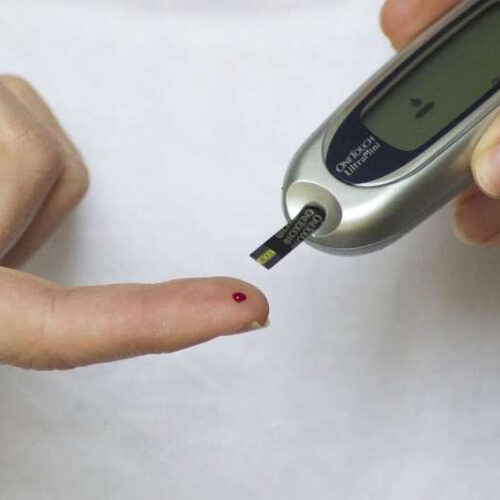Peer-Reviewed Publication INTERNATIONAL SOCIETY FOR STEM CELL RESEARCH Following encouraging results from pre-clinical research and a recent clinical trial on stem cell-based treatments for patients with Type 1 diabetes, researchers are now working on maximizing the function and potential of stem cell-based treatments for future application in patients. More than 8 billion people worldwide live...
Category: <span>Diabetes</span>
DNA discovery highlights how we maintain healthy blood sugar levels after meals
by University of Cambridge Credit: Pixabay/CC0 Public Domain A study of the DNA of more than 55,000 people worldwide has shed light on how we maintain healthy blood sugar levels after we have eaten, with implications for our understanding of how the process goes wrong in type 2 diabetes. The findings, published in Nature Genetics, could help...
Long-term type 1 diabetes associated with accelerated brain aging
by Justin Jackson, Medical Xpress Machine Learning Indices, SPARE-AD and SPARE-BA, as a Function of Age. A, there was no significant difference observed between EDIC participants (blue) and controls without diabetes (orange). In panel B, EDIC participants showed a significant increase in predicted brain age (SPARE-BA) demonstrating more advanced brain aging patterns. SPARE-AD indicates spatial...
Cutting breakfast carbs can benefit people with type 2 diabetes, study confirms
by University of British Columbia Credit: CC0 Public Domain An international team, led by UBC Okanagan researchers, suggests a simple tweak to the first meal of the day might help people living with type 2 diabetes (T2D) better control their blood sugar levels. Dr. Barbara Oliveira conducts research with Dr. Jonathan Little’s Exercise, Metabolism and Inflammation...
1 in 3 adults with Type 2 diabetes may have undetected cardiovascular disease
AMERICAN HEART ASSOCIATION Research Highlights: One-third of adults in the U.S. with Type 2 diabetes may have symptomless or undetected cardiovascular disease. Adults with Type 2 diabetes who do not have any signs or symptoms of cardiovascular disease are more likely to have elevated levels of two proteins linked to heart disease than peers without...
Biomarkers for the progression of type 2 diabetes identified
by University of Montreal NogoR enhances glucose clearance and insulin sensitivity in HFD mice. Two separate cohorts of wild-type male C57BL/6 J mice were maintained on a high-fat diet for 6 weeks, then injected for 14 consecutive days with saline or 100 ng (2.1 pmol/animal) recombinant NogoR. a, b Body weights of cohort one and circulating glucose levels during an oral glucose...
Wharton’s jelly found to halt diabetes progression in Phase II trial
by Justin Jackson, Medical Xpress (a) Percentage Δ-change in C-peptide AUC (0–120 min) for the MMTT comparison between baseline (before treatment) and 12 months after treatment, at the day 372 visit. A comparison of participants treated in part A of the study (dose escalation study) was performed. Participants receiving high-dose ProTrans (n=3) demonstrated a maintenance...
Researchers identify novel mechanism of hepatic gluconeogenesis via PHD3-mediated hydroxylation of CRTC2
by Liu Jia, Chinese Academy of Sciences The proposed model for PHD3-mediated noncanonical CRTC2 hydroxylation-dependent activation of hepatic gluconeogenesis. Targeting PHD3 or CRTC2 hydroxylation may provide novel therapeutic avenues for the treatment of hyperglycemia and type 2 diabetes. Credit: Prof. Li’s team A team led by Prof. Li Yu from the Shanghai Institute of Nutrition and...
Researchers identify gene expression signature that predicts progression of type 1 diabetes
by University of Turku Correlations of gene expression ratios between the baseline and 1-year follow-up samples (i.e., expression change) against zinc transporter 8 (ZnT8) autoantibody status at baseline. (a) Uniform manifold approximation and projection dimensional reduction of all gene ratios (n = 46), colored on the basis of the correlation. (b) Examples of gene ratios between the baseline...
Study shows dementia risk increases the earlier a person develops diabetes
by Diabetologia Credit: CC0 Public Domain New research published in Diabetologia shows an association between type 2 diabetes (T2D) and developing dementia in later life—with the risk of dementia increasing the earlier a person develops T2D. The study is by Ph.D. student Jiaqi Hu and Professor Elizabeth Selvin of the Johns Hopkins Bloomberg School of Public Health, Baltimore,...


